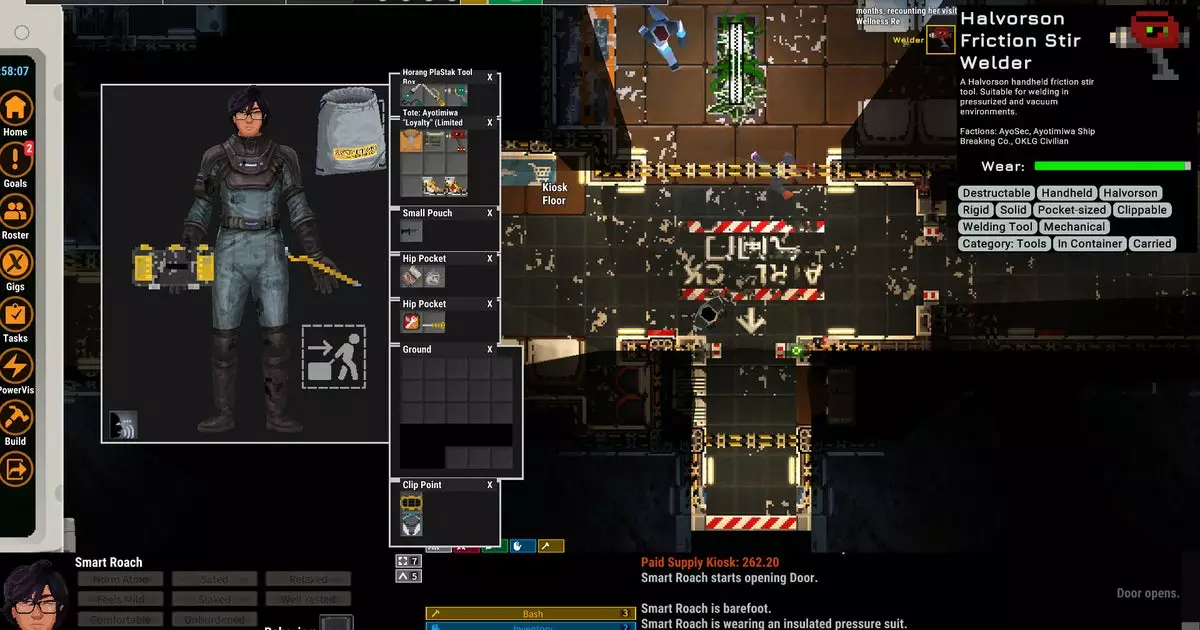In the world of video games, few genres resonate with fans like roguelikes, with their intricate mechanics and permadeath elements. One particularly beloved title is Neo Scavenger, a post-apocalyptic journey that emphasizes survival and strategic decision-making. Following its success, developers have shifted to creating Ostranauts, a spacefaring sequel currently nestled in Early Access. However, despite its engaging premise, Ostranauts’ complexity may alienate some players. Enter Kitfox Games—a publisher known for their talent in refining dense mechanics into enjoyable experiences.
Ostranauts is designed as a “hardcore noir space-sim” that encourages players to immerse themselves in management and exploration. Within its universe, individuals scour the remnants of shipwrecks, striving to enhance and personalize their spacecraft. While this sounds fantastic in theory, the execution can be daunting. The game presents users with multiple interactive systems, each accompanied by an array of buttons and displays. This overwhelming design could potentially lead to feelings of frustration among players who prefer a more accessible gaming experience.
The challenge lies not solely in the number of controls but also in their clarity. When faced with a user interface (UI) that features an abundance of buttons without clear descriptions, many players – particularly those unaccustomed to complex games – may find themselves lost. In the context of gaming, being overwhelmed can swiftly transition to disengagement, as players often seek experiences that balance challenge with approachability.
The Potential Impact of Kitfox Games
Kitfox Games has built a reputation for their ability to take challenging titles and make them more user-friendly. They partnered with Dwarf Fortress, turning a game once characterized by frustrating controls and ASCII graphics into a more welcoming version while retaining its depth. Their involvement with Ostranauts creates an opportunity for substantial improvements in the UI and overall gameplay experience. However, skepticism arises due to the lack of explicit plans for enhancing the game’s accessibility in the announcement regarding this new partnership.
The goal for Kitfox should be to ensure that new players can dive into Ostranauts without feeling overwhelmed. By providing clearer instructions, optimizing game mechanics, and maintaining the detailed environment that defines the game, they could broaden its appeal. This balance will be crucial as they head toward the scheduled 1.0 release in 2025.
Despite its current challenges, there’s a strong yearning from fans for Ostranauts to succeed. The desire to build a crew, command a ship, and explore the cosmos is compelling enough to keep players invested, even amidst uncertainties. The initial positive impressions serve as a foundation for optimism that future updates will address the existing issues.
If Kitfox succeeds in making Ostranauts more understandable while preserving the exhilarating elements of exploration and strategy, it could carve out a significant niche within the gaming landscape. While Neo Scavenger remains a personal favorite, there is hope that Ostranauts will emerge as an equally engaging experience with the necessary enhancements. In experiencing the thrill of survival—whether it be on Earth or among the stars—gamers undoubtedly yearn for a game that both challenges and invites them into its world.

